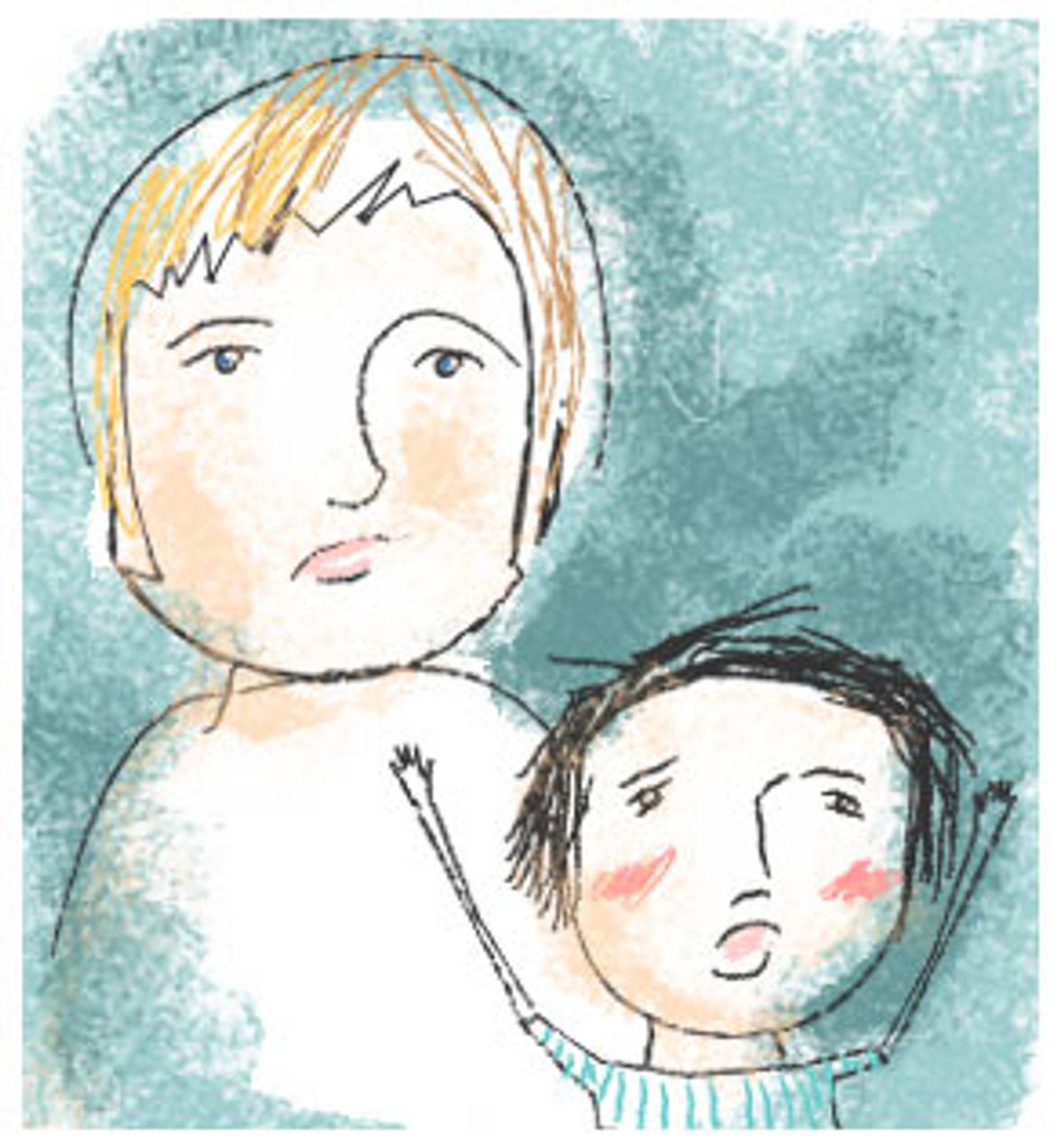Eight years ago, in a cold apartment in Romania, I sat on a raggedy couch with sprung springs, watching a toddler bouncing off the walls and wondering if I had made the biggest mistake of my life. She'd run toward one wall, slam into it, and race toward the other wall, slamming into it -- taking breaks only to wiggle behind the TV to see where the cartoon characters were coming from.
My husband of seven years sat across the room from me, watching me watch Ana. I hoped like hell he couldn't read my mind. Just six months earlier, we'd told our friends and family we were ending infertility treatments and adopting an abandoned child. Adoption wasn't a backup plan for us, we told them, but a comfortable -- a guaranteed -- way to become parents. And at 31, I needed that assurance so I could get on with motherhood.
I was determined to do it right. I read books on adoption, talked with other parents, recalled how my own parents brought up my brother and me -- but none of that prepared me for a kid throwing Winnie the Pooh figurines at me and giggling the whole time. What was it I had read about timeouts? And redirecting hyperactive behavior? No clue. I was in over my head.
Sitting on that couch, jetlagged and homesick, I recalled my fantasies about adopting a neglected orphan and making her mine. She'd need shoes. I'd buy her some. She'd have to know English. I'd teach her. She'd be lonely. I'd hold her. I'd brush her hair, play hopscotch, kiss skinned knees, and whisper bedtime stories. She'd love me like none other.
I even fantasized about the moment I'd meet Ana for the first time. All the way from our home in Milwaukee on the long flights to Bucharest, I replayed the scene in my mind: Ana runs toward me, arms outstretched. I wrap her up in mine and lift her over my head. She laughs and I pull her back toward me. She strokes my face and says, "Salut, Mama," and I look deep in her beautiful brown eyes. I tell her she's mine and I love her already.
But I didn't love her. It was hard to even like her. Standing in the orphanage, she wouldn't look at me. She wouldn't turn when she heard my voice. At the apartment we stayed in for nearly a week, she screamed when we bathed her and whined for drinks of bottled water in the roach-infested kitchen. And she pooped the stinkiest, most toxic, practically alien substance -- and every 30 seconds, it seemed.
I thought about the times, only months earlier, when I was popping fertility pills and taking my basal temperature at 5 a.m. each day; the times I had lain on the exam table with my feet in stirrups. Adopting a child meant that, finally, I would get my chance to have what others got so easily. And then everything would be fine.
Suddenly, cooped up with a hyper 2-and-a-half-year-old, I felt a big part of me urging me to run for my life. I wanted out.
But I also wanted in. I had worked hard to get to this point. I was a mom. The adoption papers said so. And I wanted to feel the love that comes with the territory.
Six days after we met Ana for the first time, we arrived at O'Hare International Airport to a throng of crying friends and relatives. They ooohed and aaahhhed and passed her around until she pooped and I had to take her to the restroom for a changing. Again. Blame the tapeworms and bad water.
Ana's hyperactivity was exhausting, and I wondered if her behavior was my fault because I wasn't disciplining her right. Or attending to her right. Or feeding her right. Or anything right.
Worse yet, I couldn't control my own feelings of pure frustration, like the time she flushed my ring box lid down the toilet, and fear (what if this never gets better? I worried). And the feelings of mind-numbing boredom -- I can play only 387 games of peek-a-boo in a row and then I snap. I wanted to go back to work like nobody's business. I missed grown-up conversations and the ego trip when people told me I did a good job. I faked harmony when people said, "I bet you're enjoying time at home." Above all, I was mad: mad at the situation, mad at my husband, who got to escape to work every day, mad at myself for not being as cool and patient as I thought I should be, mad at other adoptive parents who seemed genuinely happy.
So one day, in desperation, two months into motherhood, when Ana was running through the kitchen on overdrive, I decided to end it all. I simply could not go on that way. In one impulsive moment, I took Ana's face in my hands, made her look at me, took a deep breath, and told her I loved her. I was lying, but I needed to hear myself say it. Amazingly, Ana held my gaze.
I said it again. And again. Six times I forced it, still feeling the anger and desperation. And then I just stared at her. A moment passed, her face still in my hands. She opened her mouth, forming her words carefully the way she did every time she repeated things, and replied, "I lub do, Mom." Whether or not she understood what she was saying was a mystery to me. But it didn't matter. Ana and I spent the next five minutes or so saying we loved each other -- and I swear, when it was over, we did.



Shares